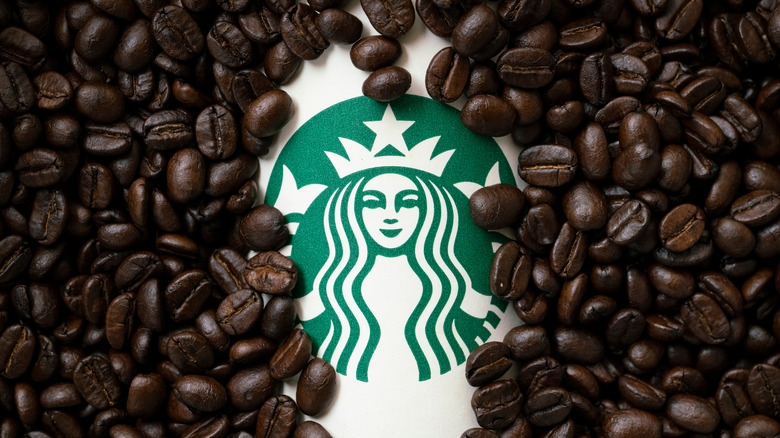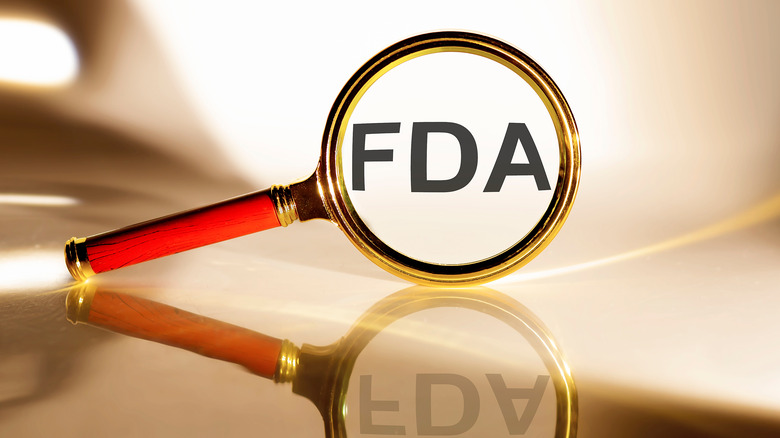Everything We Know About Starbucks' Espresso Shot Recall
Starbucks has been involved in some big scandals and has had its fair share of controversy over the years, but the coffee giant has been a particularly strong player in the 2022 news cycle. Namely, the chain has found itself at odds with droves of employees around the country in the midst of its workers' ongoing drive for union representation. Skirmishes between corporate HQ and pro-union employees have led to store-wide walk-outs, accusations of labor violations by way of the NLRB (per CNBC), and other headline-making events.
In August, the Twitter hashtag #BoycottStarbucks began proliferating across the pond after a viral image led British customers to believe that the chain would stop accepting cash starting October 2022 (a rumor that has since been dispelled by Starbucks U.K.). Five months earlier, some customers questioned their loyalty to the brand yet again following an issue with its Double Shot Espresso canned beverage, which was recalled in several states due to "inadequate sealing" (per Food Safety News).
Blame it on the Mercury retrograde, but this week brought news of another Starbucks recall. This time, it's due to possible contamination in more than 200 cases of its Vanilla Espresso Triple Shot drink, Delish reports.
Hundreds of cans may be contaminated with metal fragments
Per an August 15 FDA notice, 221 cases of Starbucks Vanilla Espresso Triple Shot drink have been recalled from grocery stores due to the "possible contamination by foreign material," aka fragments of metal. The recall is voluntary on the part of the drink's manufacturer, PepsiCo. According to Delish, the only states affected by the recall are Arkansas, Arizona, Florida, Illinois, Indiana, Oklahoma, and Texas.
Disturbingly enough, mass-produced food and drink items have a long history of metal contamination. Kraft Foods recalled nearly 300,000 cases of its macaroni and cheese in 2015, according to TIME, which has been succeeded by an ongoing slew of metal-related recalls of products from Baskin Robbins, Chicago's Vienna Beef, and — most disturbingly — a brand of baby food (per Food Safety News).
The FDA explains that metal can find its way into our food for a number of reasons. Sometimes, metal occurs naturally in soil and in the air, and other times it comes from "industrial, manufacturing, and agricultural processes." In the case of this Starbucks drink, the culprit is the latter.

